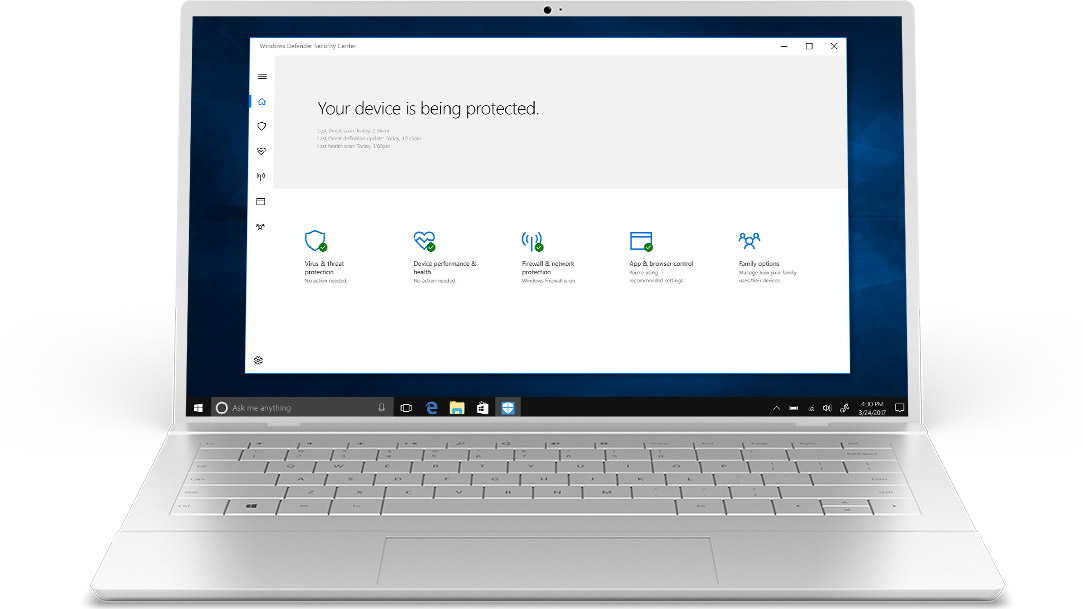Windows Defender To Remove Coercive 'Cleaner' Programs
According to Microsoft, there has been an increase in free “cleaner” or “optimizer” applications that promise to clean your PC, only to then ask you for money to “fix” the problems the free versions found. The company warned users to stay away from such apps and not waste any money on them.
Changing Unwanted Software Criteria
Because of this growing problem, Microsoft is going to change the evaluation criteria for applications that its Windows Defender antivirus will take into account when scanning a user’s PC. If programs use tactics that scare users into purchasing certain software, Windows Defender will begin to classify these programs as “unwanted software,” and then it will delete the apps from the users’ computers.
Microsoft started requiring cleaner and optimizer applications to provide customers with detailed explanations about what supposedly needs to be fixed back in February 2016. The rule was meant to protect Windows customers against programs that presented aggregated “error” reports with no specific details and no way for the users to validate if the errors were real.
Cleaner programs will be classified as unwanted software if they fall under the following criteria:
Programs must not display alarming or coercive messages or misleading content to pressure you into paying for additional services or performing superfluous actions.Software that coerces users may display the following characteristics, among others:Reports errors in an exaggerated or alarming manner about the user’s system and requires the user to pay for fixing the errors or issues monetarily or by performing other actions such as taking a survey, downloading a file, signing up for a newsletter, etc.Suggests that no other actions will correct the reported errors or issuesRequires the user to act within a limited period of time to get the purported issue resolved
Microsoft’s Windows Defender and other security products will begin classifying and removing unwanted software based on the coercive messaging criteria starting with March 1. If you’re a software developer who is unsure about how your application would be classified, Microsoft recommended visiting it Windows Defender Security Intelligence portal for more information on the issue. The company also encouraged users to submit this type of application whenever they encounter one, so that it can protect all users against them more effectively.
Get Tom's Hardware's best news and in-depth reviews, straight to your inbox.
Lucian Armasu is a Contributing Writer for Tom's Hardware US. He covers software news and the issues surrounding privacy and security.
-
dextermat Too little too late. Most likely it will cause more trouble like blocking legitimate cleaning program but let in PUP as easy as 123....Reply -
wysir Too late? The Windows ecosystem isn't dead. They are in fact late to the party and they haven't had the greatest reputation, but still. Don't write off their positive efforts until it's a proven negative impact.Reply
If they aren't conniving to mess customers over, this looks to be a step in the right direction for Microsoft. Remember that they aren't making any profit off of Windows Defender so they have no reason to retaliate against legitimate software. -
Oldtreker It isn't a bad Idea although I'm not sure they can legally remove software without the owners permission even if its junk. Another scam is your driver's are out of date.Reply -
Rock_n_Rolla CCleaner, Tuneup Utilities and other System optimizer apps for Windows will have to do a bit better this time around, that is... on their next version after this announcement for Windows defender, and if they cant keep up or got flagged well,.. I guess that's one big problem for the developers of these system optimizers, either they sue Microsoft for illegal business practices or for any anti competitive issues or release a better version of their apps where users specially those who arent savvy can truly benefit from their products.Reply -
Hal-Jordan That sounds excellent. I've been using Windows Defender for many years and more recently, Malwarebytes. That and not taking risks has kept my system virus free for many years. Thank you, Microsoft.Reply -
cryoburner Reply
Of course they can legally remove software. That's what anti-malware utilities do. If software is using deceptive tactics to trick people into thinking they have to pay money for something they don't actually need, then it can be classified as malware.20655489 said:It isn't a bad Idea although I'm not sure they can legally remove software without the owners permission even if its junk. -
The Paladin MS defender doesn't REMOVE programs without asking, its a setting you set in the program. just like any virus it finds, the program asks you what do you want me to do with it. of course if you set it to decide (which I would never do, as it sees auslogics hard drive defragger as a malware) to let it make it own decision, may I suggest you tell it to stick it in a sandbox and not delete it automatically.. I have seen O/S get messed up that way.Reply
-
slicedtoad Sounds good to me. One less thing to routinely remove from people's computers every time I get called to fix them.Reply -
techy1966 Yep sounds good in theory & I hope it works well and helps people. I am fine with it as long as MS does not take it a step to far and start uninstalling programs that we actually installed and know to be safe to use such as ccleaner etc. If they stay within their bounds then it is fine but what I have seen of how they have made their Windows update get more & more aggressive in each new version of Windows 10 I have little faith that they will stay in their boundaries with this and as time passes they will get a bit more brave and start removing competing products from everyone's system.Reply
